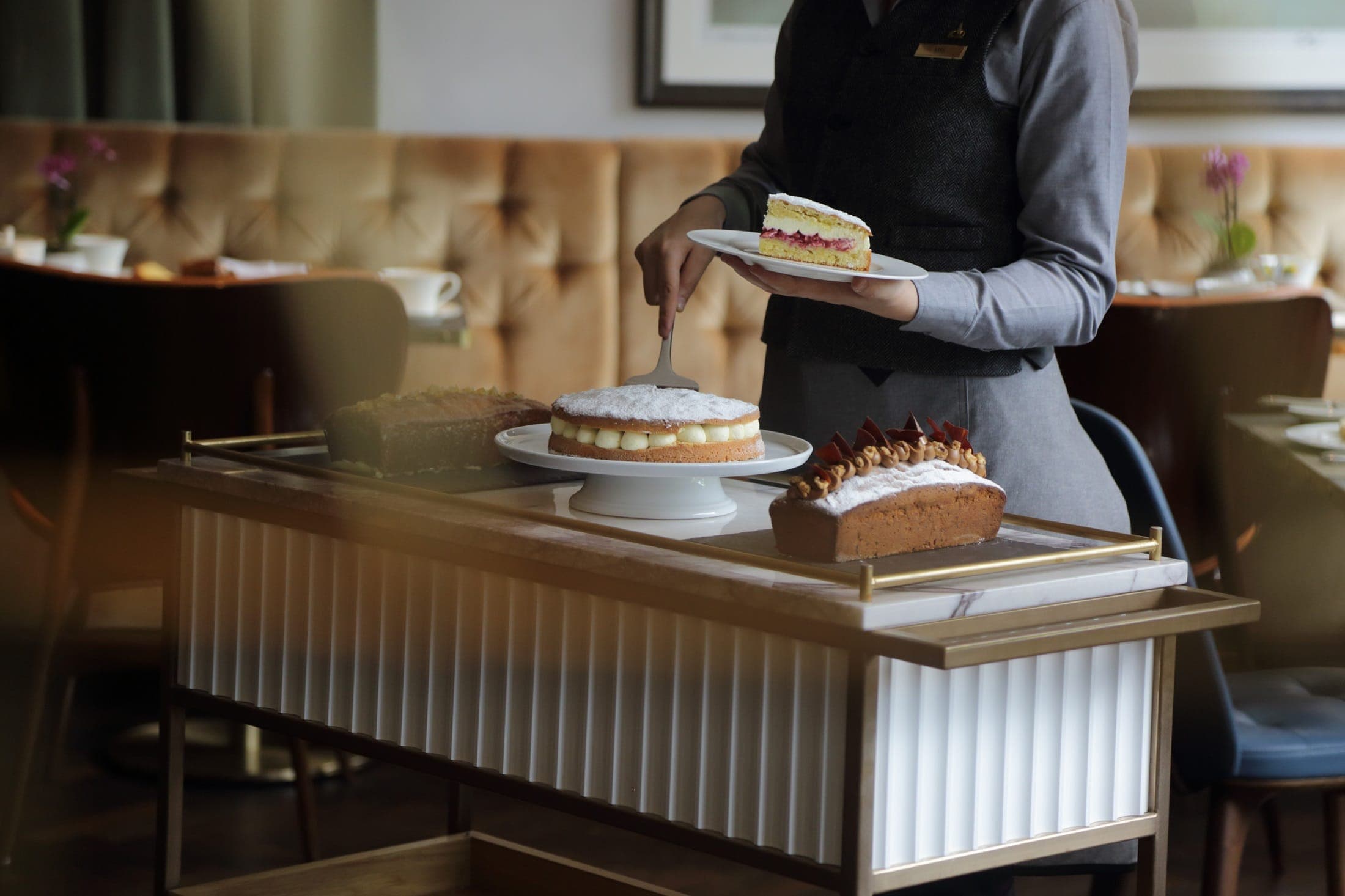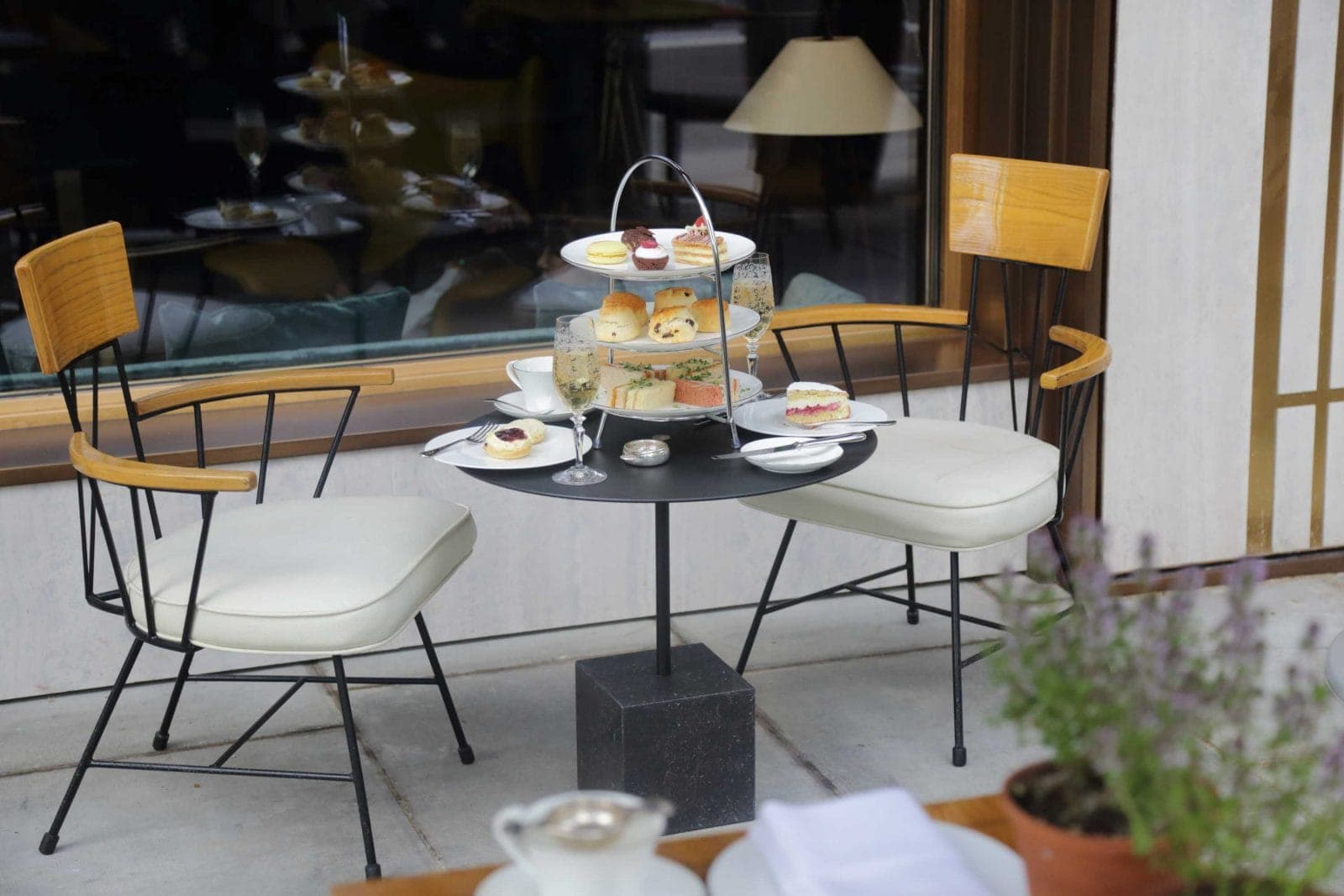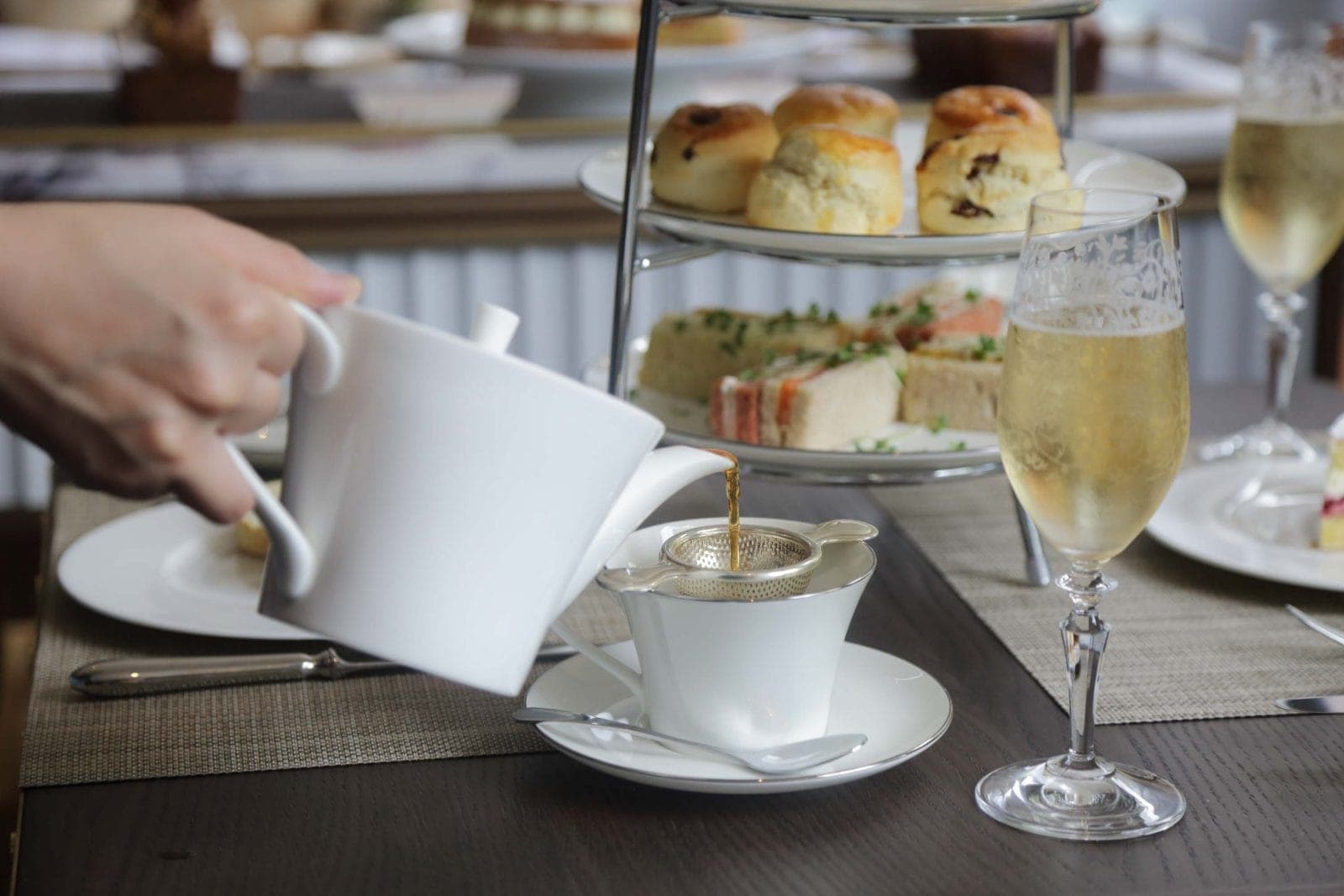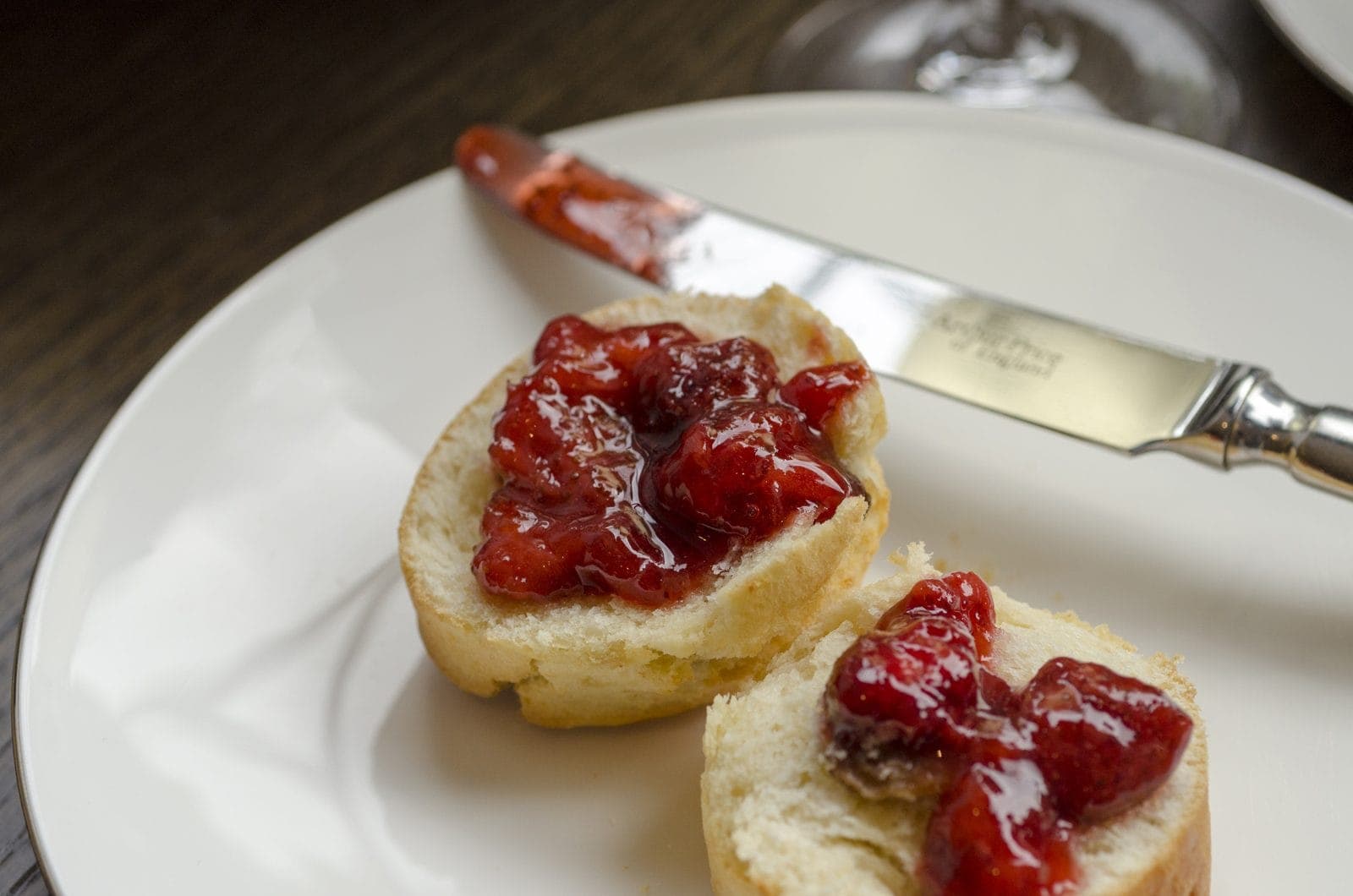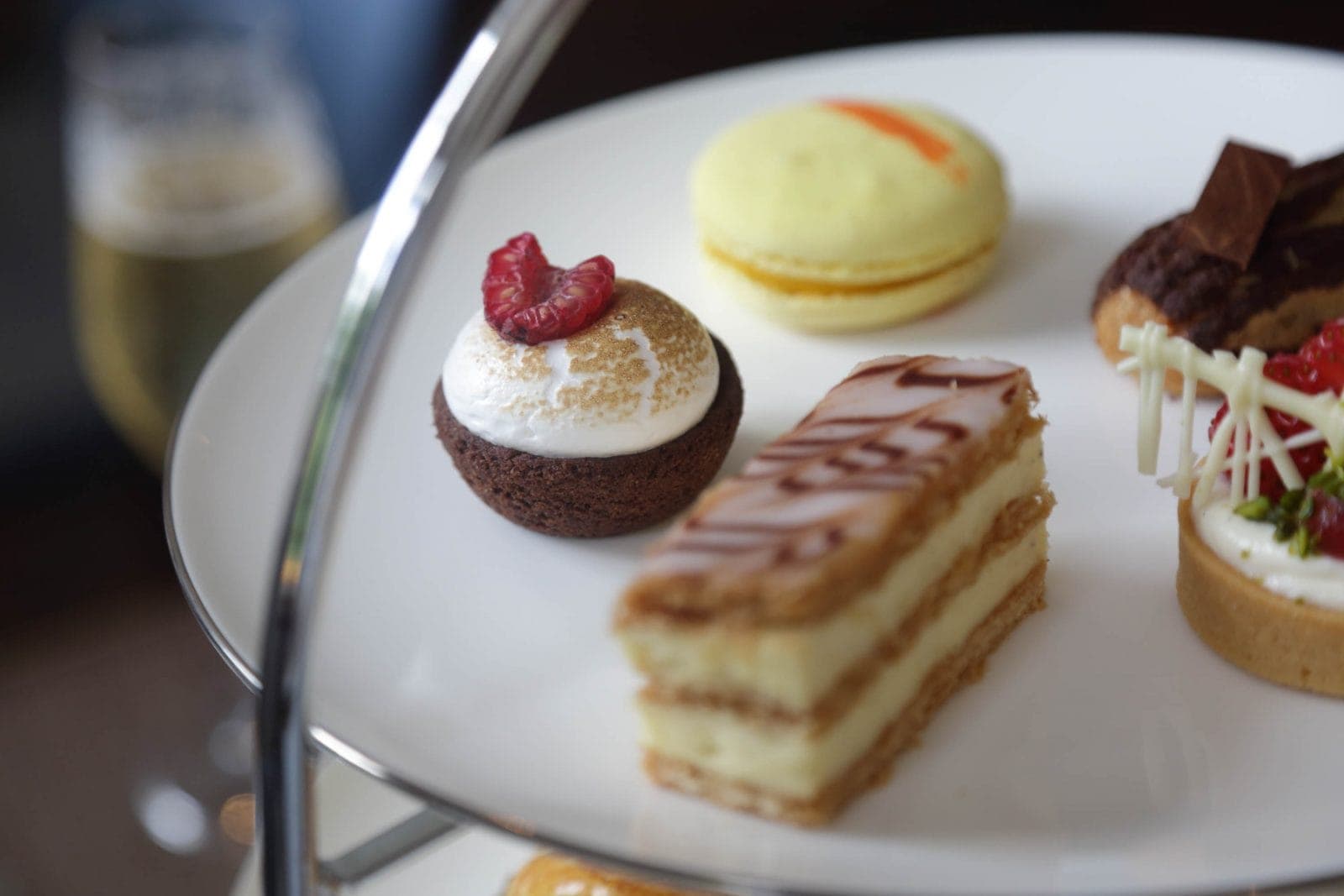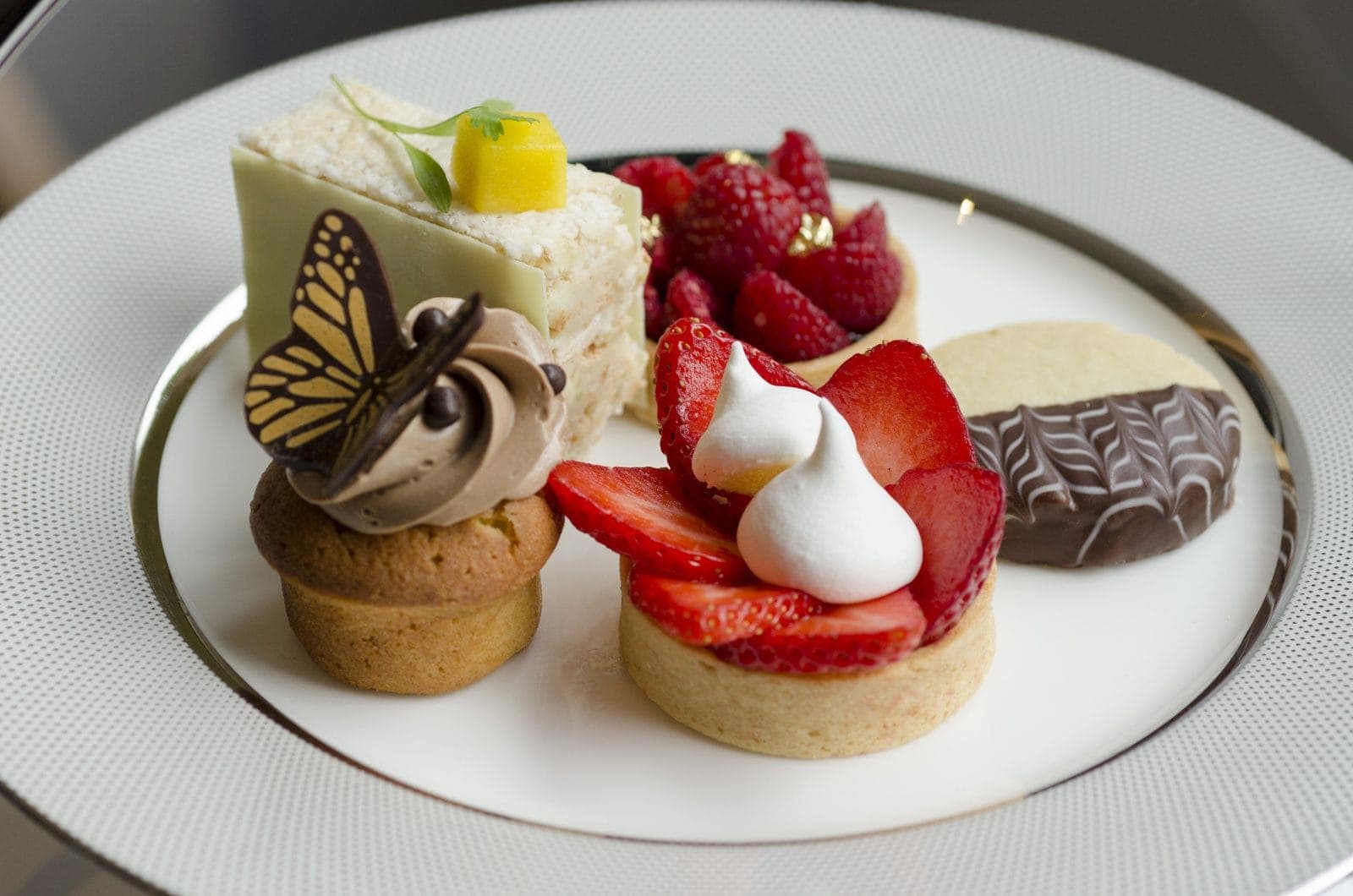Preparing your tea
There are hundreds of types of tea on offer during afternoon tea experiences. The most traditional tea to choose is English Breakfast, a blend of black teas originating from Assam, Ceylon and Kenya. Allow the tea to brew for between three and six minutes; leave it any longer and you risk ‘stewing’ the tea, damaging the flavour.
Some say it’s traditional to put milk into your cup first before pouring the tea. However, in the past this was to stop low quality drinking vessels from cracking due to the hot liquid. Since that’s not an issue nowadays, it’s more common to add milk after the tea. This allows you to add just the perfect amount of milk to create the tea colour of your liking.
When pouring the tea, don’t forget to put the tea strainer on your cup first, or risk having tea leaves floating in your cup.
There’s even a correct way to stir tea, which is up and down from about the 6 o’clock position to the 12 o’clock position, without clinking the spoon on the side of your cup.
